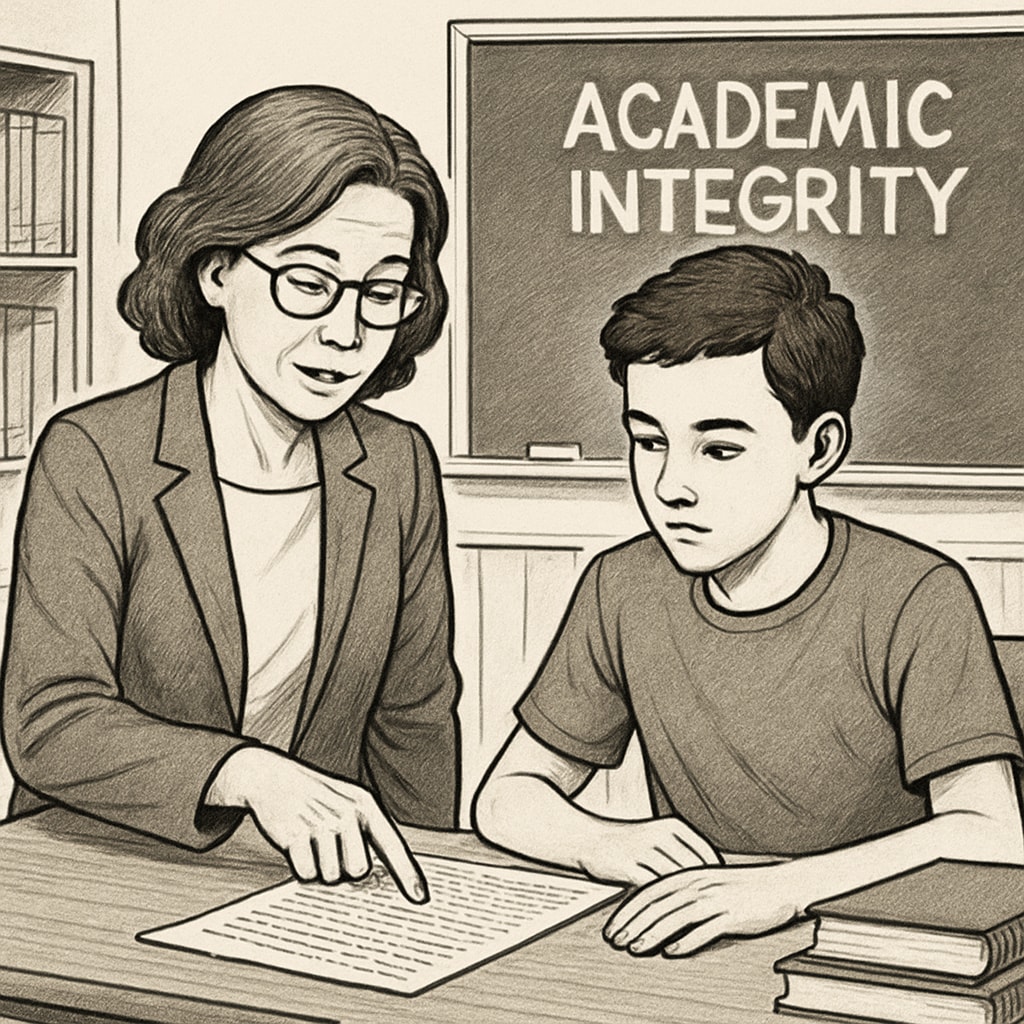Plagiarism accusations by educators, especially in K-12 settings, carry significant weight. When such accusations are misguided or incorrect, they can severely impact students’ academic journeys and personal growth. Educators, as the guardians of academic integrity, must ensure that their judgments are both fair and evidence-based. Misguided accusations not only erode the trust between students and professors but also highlight the need for a transparent and balanced approach to academic integrity. This article delves into the complexities of plagiarism accusations in K-12 education, examines the consequences of false claims, and proposes actionable strategies to safeguard students’ rights while upholding educational standards.
The Role of Educators in Upholding Academic Integrity
Professors and teachers serve as the primary enforcers of academic integrity in educational institutions. Their role is not only to identify and address instances of misconduct but also to foster an environment where students understand the value of originality and ethical behavior. However, in K-12 education, where students are still learning the nuances of academic writing and proper citation, plagiarism accusations must be handled with care.
For instance, younger students may unknowingly fail to cite sources correctly or paraphrase information inadequately due to a lack of proper guidance. Labeling such mistakes as intentional plagiarism can have long-term effects on their confidence and willingness to engage in academic challenges. Therefore, educators must differentiate between genuine errors and deliberate dishonesty.

The Impact of Misguided Plagiarism Accusations
When a student is falsely accused of plagiarism, the repercussions can extend far beyond a single assignment. Emotional stress, damaged reputations, and strained relationships with educators are just a few of the potential consequences. In some cases, students may even develop an aversion to academic writing or lose trust in the fairness of the educational system.
In addition to the emotional toll, misguided accusations can also hinder students’ academic progress. For example, a student penalized for an error they didn’t commit might miss important learning opportunities or fail to meet crucial milestones. As a result, educators must exercise caution and ensure that accusations are backed by clear evidence and a thorough review process.

Building a Transparent Framework for Academic Integrity
To minimize the risk of false plagiarism accusations, educational institutions should adopt a transparent and equitable framework for addressing academic misconduct. Here are several strategies to consider:
- Educate Students: Regular workshops and classes on citation practices, paraphrasing, and the importance of originality can help students understand what constitutes plagiarism.
- Use Technology Wisely: While plagiarism detection software can be a useful tool, it should be used as a guide rather than definitive proof of misconduct. Results must be interpreted with context and discretion.
- Encourage Open Dialogue: Students should feel comfortable discussing their work with educators, especially if they are unsure about citations or referencing.
- Implement a Review Process: Before penalizing a student, institutions should establish a review process involving multiple stakeholders to ensure accuracy and fairness.
By adopting these measures, schools can create an atmosphere where academic integrity is upheld without compromising students’ rights or trust.
Conclusion: Striking the Right Balance
Maintaining academic integrity is undeniably important, but it should never come at the cost of fairness and empathy. Misguided plagiarism accusations, particularly in K-12 education, highlight the need for a balanced approach that considers students’ developmental stages and learning curves. By fostering open communication, providing proper guidance, and ensuring a transparent review process, educators can protect both academic standards and the well-being of their students. In this way, the dual goals of academic integrity and educational justice can coexist harmoniously.
As we continue to navigate the evolving landscape of education, it is imperative to remember that academic integrity is not just a set of rules to enforce but a value to nurture. By treating students with fairness and understanding, educators can inspire a lifelong commitment to ethical learning practices.
Readability guidance: The article balances professional content with accessible language. Short paragraphs and lists make complex ideas easier to digest, while transitions ensure a smooth flow. Passive voice is minimized, and key points are emphasized for clarity.


